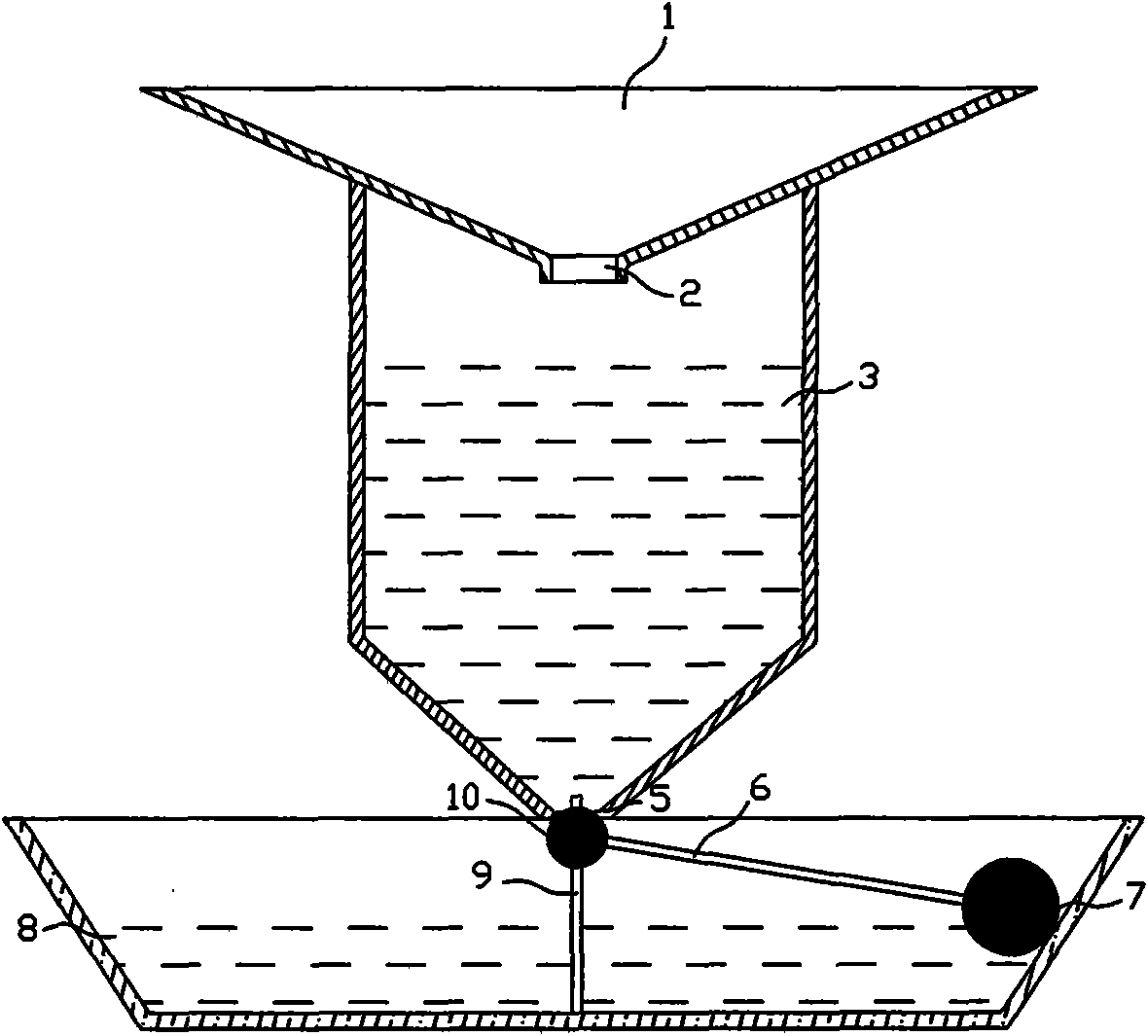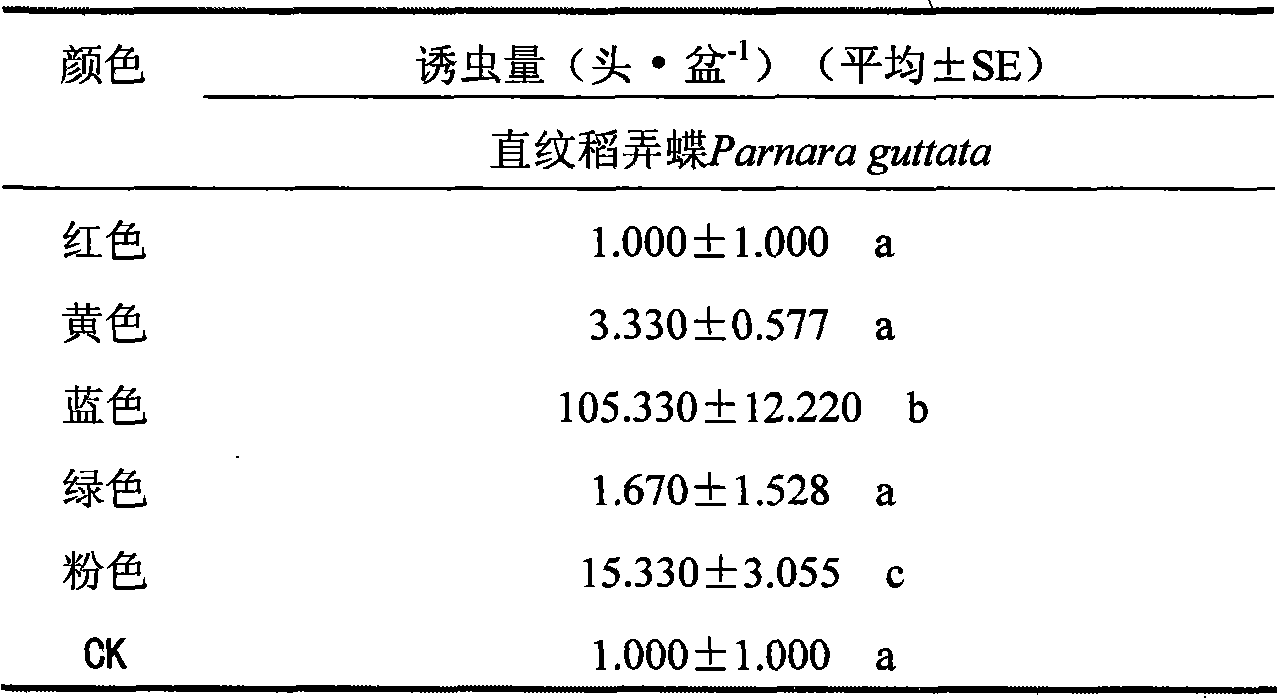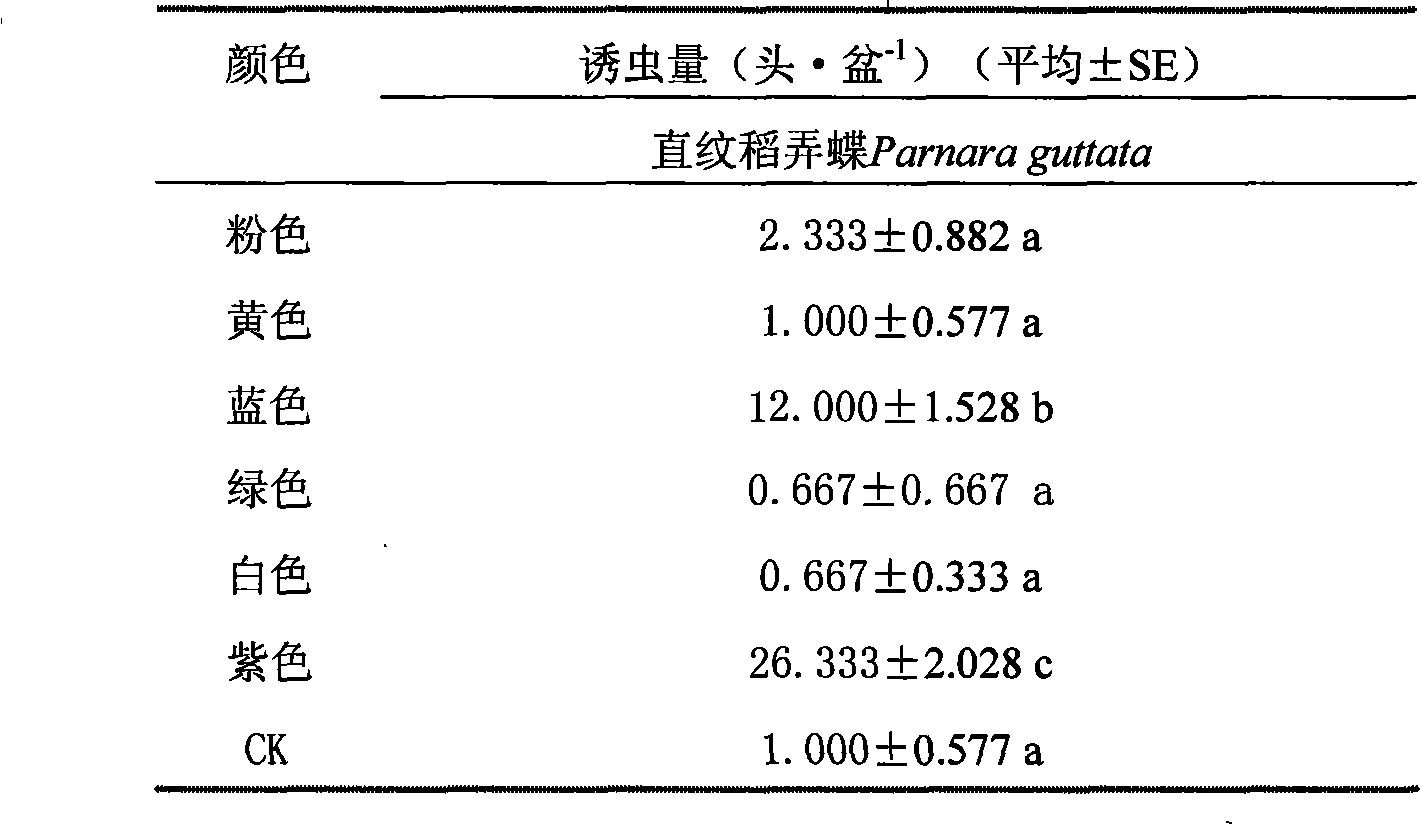Butterfly-class pest trapping method and device thereof
A pest and trapping technology, applied in devices, applications, animal husbandry, etc. to capture or kill insects, can solve problems such as unsatisfactory control effects, threats to human food chain and living environment safety, pesticide residues, etc., and achieve no ingredients. The effect of harmless, good water retention and high efficiency
- Summary
- Abstract
- Description
- Claims
- Application Information
AI Technical Summary
Problems solved by technology
Method used
Image
Examples
Embodiment 1
[0020] Example 1 The experiment of different color lure pots in apple orchards to attract straight-grained rice
[0021] The experiment was carried out from mid-July to early-August 2006 in the apple orchard of the Experimental Garden of the College of Horticulture, Northwest A&F University. Clover was planted between rows of fruit trees, and the surrounding crops mainly included corn, flowers, plum trees, peach trees, and vegetables. Buy 5 plastic pots (D=25cm) of 5 colors (D=25cm) of red, yellow, blue, green, and pink on the market, set up 3 repetitions, support a tripod with bamboo poles and thin iron wires, put the lure pots in the middle, and lure the pots. Drill 5 holes in the middle of the depth to prevent insects from being washed away by the rainwater in the rainy day. At a height of about 1.2m from the ground, add half a basin of clear water and a little washing powder to the lure basin, and arrange them in random groups on the test site. Set 1 A contrast, a colorles...
Embodiment 2
[0022] Example 2 The experiment of attracting pots with different colors to attract straight-grained rice in the vegetable field
[0023] The experiment was carried out in Zhumadian cabbage field in July 2008, surrounded by corn. Buy 6 plastic basins (D=25cm) in 6 colors of yellow, blue, green, pink, purple and white on the market, set 3 repetitions, drill 5 holes in the middle of the depth of the lure basin, so as not to be full of rainwater in rainy days Wash away the insects in the basin, add half a basin of clear water and a little washing powder to the lure basin, arrange them in random blocks and place them directly on the test site, and set up a control, which is a colorless and transparent plastic basin. Investigate once a day at 9 o'clock in the morning, collect the insects in the pots, record the number and types, bring the specimens back to the laboratory for identification, change the position of the pots with different colors after each survey, change the water in...
Embodiment 3
[0024] Example 3 The test of sticking boards of different colors in the paddy field to attract the butterfly of straight-grained rice
[0025]The test was carried out in the Huayuankou rice fields in the suburbs of Zhengzhou from late July to early August 2008. Six different colors of sticky boards were yellow, blue, green, pink, purple and white, with a size of 25×40cm. The sticky boards were provided by Jiaduo Company . 6 treatments with 3 replicates. Supported by bamboo poles, the sticky board is about 10cm away from the top of the rice paddy, arranged in random blocks and hung on the test site, and one control is set, which is a colorless transparent sticky board. Investigate once a day at 9 o'clock in the morning, collect the insects on the board, record the number and type, bring the specimen back to the laboratory for identification, change the position of the sticky board with different colors after each survey, and continuously investigate for 10 days (except rainy d...
PUM
 Login to View More
Login to View More Abstract
Description
Claims
Application Information
 Login to View More
Login to View More - R&D
- Intellectual Property
- Life Sciences
- Materials
- Tech Scout
- Unparalleled Data Quality
- Higher Quality Content
- 60% Fewer Hallucinations
Browse by: Latest US Patents, China's latest patents, Technical Efficacy Thesaurus, Application Domain, Technology Topic, Popular Technical Reports.
© 2025 PatSnap. All rights reserved.Legal|Privacy policy|Modern Slavery Act Transparency Statement|Sitemap|About US| Contact US: help@patsnap.com



